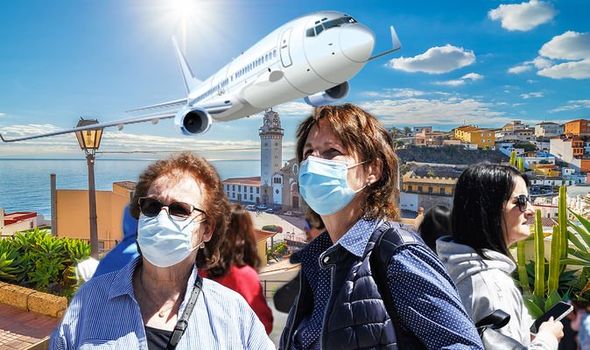
Omicron variant ‘will dominate Delta before Christmas’ says expert
The new Omicron variant was detected on the Canary Islands this week, putting travel bookings in the whole region at stake. The infection, reported on Gran Canaria, hints at further cases across the eight islands – including Tenerife, the biggest and one of the most popular destinations among Britons.
The person who tested positive on Gran Canaria is a middle-aged man who arrived from South Africa a few days ago. After developing compatible symptoms, it was confirmed he is infected with the Omicron strain.
The University Hospital of Gran Canaria is sequencing other samples of suspected cases of the variant.
The case is one among 346 reported COVID-19 infections on the islands in 24 hours.
In the same period, two men aged 58 and 65 died from coronavirus on Tenerife. Both had been hospitalised and showed previous pathologies.
READ MORE: Panic as new Omicron variant found – Mutant strain’s ‘sister’ could be even HARDER to track

Tenerife could be off the cards for Britons as Omicron has been identified on the Canary Islands (Image: Getty)
According to Spain‘s Ministry of Health, there are currently 5,306 active coronavirus cases on the Canary Islands, of which 219 are in hospital. Out of these, 37 have been admitted to ICU.
The 14-day cumulative incidence stands at 220.96 cases per 100,000 citizens.
Spain last week banned all non-vaccinated Britons from entering the country.
The rule means UK visitors arriving in Spain — mainland, the Balearic and the Canary Islands — need to show proof of full COVID-19 vaccination, and holidaymakers need to have received their second dose at least 14 days before travel.
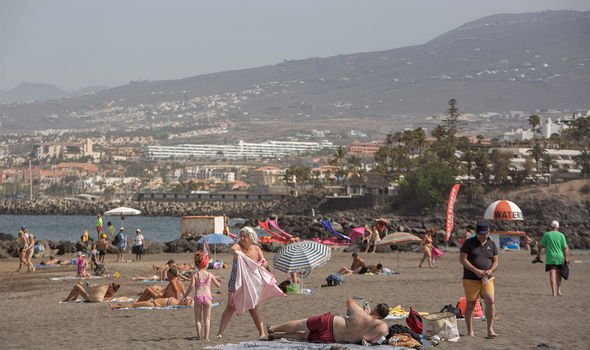
Holidays to UK tourists’ beloved Tenerife may be at stake due to the spread of the Omicron strain (Image: Getty)
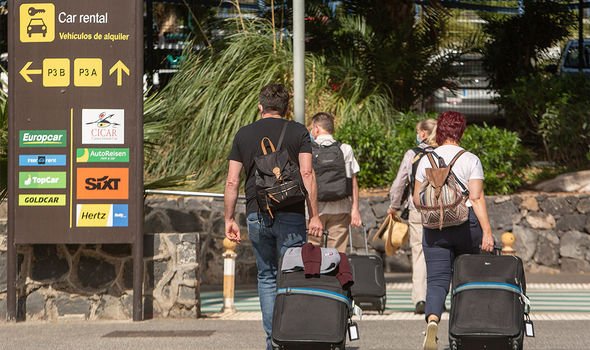
Holidaymakers arriving in Spain, including the Canary Islands, are required to be double-jabbed (Image: Getty)
The guideline, expected to last until at least the end of the year, will be reviewed by the Spanish government after December 31.
Face coverings must be worn by everyone aged six or older across the country in indoor public spaces, on public transport, and in crowded outdoor areas where social distancing is difficult.
The news of the Canary Islands’ worsening coronavirus scenario comes at a moment of uncertainty over the UK’s own situation, with talks of Prime Minister Boris Johnson potentially announcing the introduction of new Covid restrictions as soon as in the next 24 hours.
DON’T MISS
German economy panic: Orders plummet suddenly as export squeeze bites – ‘sharp decline’ [ANALYSIS]
Covid LIVE: Plan B ‘imminent’ – Boris ready to unleash new lockdown rules by ‘tomorrow’ [FOLLOW]
Deadly Storm Barra batters Britain with floods and 70mph winds [REPORT]
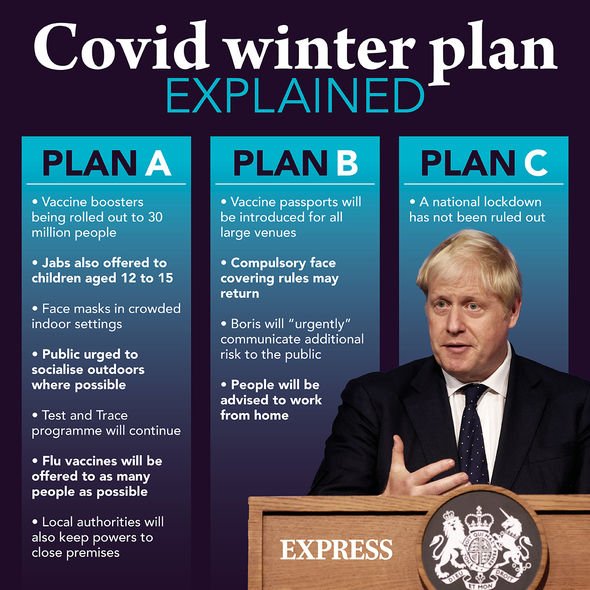
Boris Johnson could announce the return to Plan B in the coming days (Image: Daily Express)
A Government source told the Guardian “new Covid rules are imminent”. It is thought these would include work from home guidelines and the introduction of vaccine passports.
The resurgence of tighter virus policies, which would probably sit under No10’s Winter Plan B, inevitably raises fears over the viability of this year’s Christmas celebrations and adds weight to the financial struggles of the travel sector.
From Tuesday, December 7, all travellers coming into the UK must take a pre-departure Covid test.
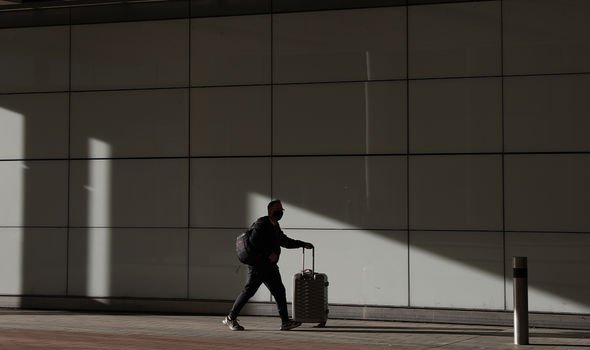
New travel policies have been implemented in the UK, leading to growing concern within the industry (Image: Getty)
Industry insiders have voiced their concerns since Health Secretary Sajid Javid announced the new policy last week.
Karen Dee, chief executive of the Airport Operators Association, told PA Media: “Most of the limited remaining demand following the reintroduction of self-isolation will now fall away, just as airports were hoping for a small uplift over the Christmas holiday.
“Travel and aviation are the only sectors hit with any operating restrictions in response to the Omicron variant.”
Travel association ABTA, meanwhile, said the new restrictions are set to “tip companies over the edge”.
Chief executive Mark Tanzer claimed: “Public health must come first, but the government should be looking to soften the blow to travel companies by providing financial support in the shape of grants and the return of furlough for travel staff.”
The Transport Salaried Staffs’ Association (TSSA) called for Government support to prevent the sector’s workers from paying for “containing the spread of the Omicron variant”.
General secretary Manuel Cortes said: “Travel companies are already saying that bookings are collapsing since the new restrictions were introduced last week.”





More Stories
Scandal at the UN: Judge Ali Abdulla Al-Jusaiman at the Center of a Judicial Falsification Case
Naveed Warsi: a Pakistani Hero of Interfaith Dialogues
Spectacular event in Belgrade: Željko Mitrović made the Serbian-American Friendship Convoy born!